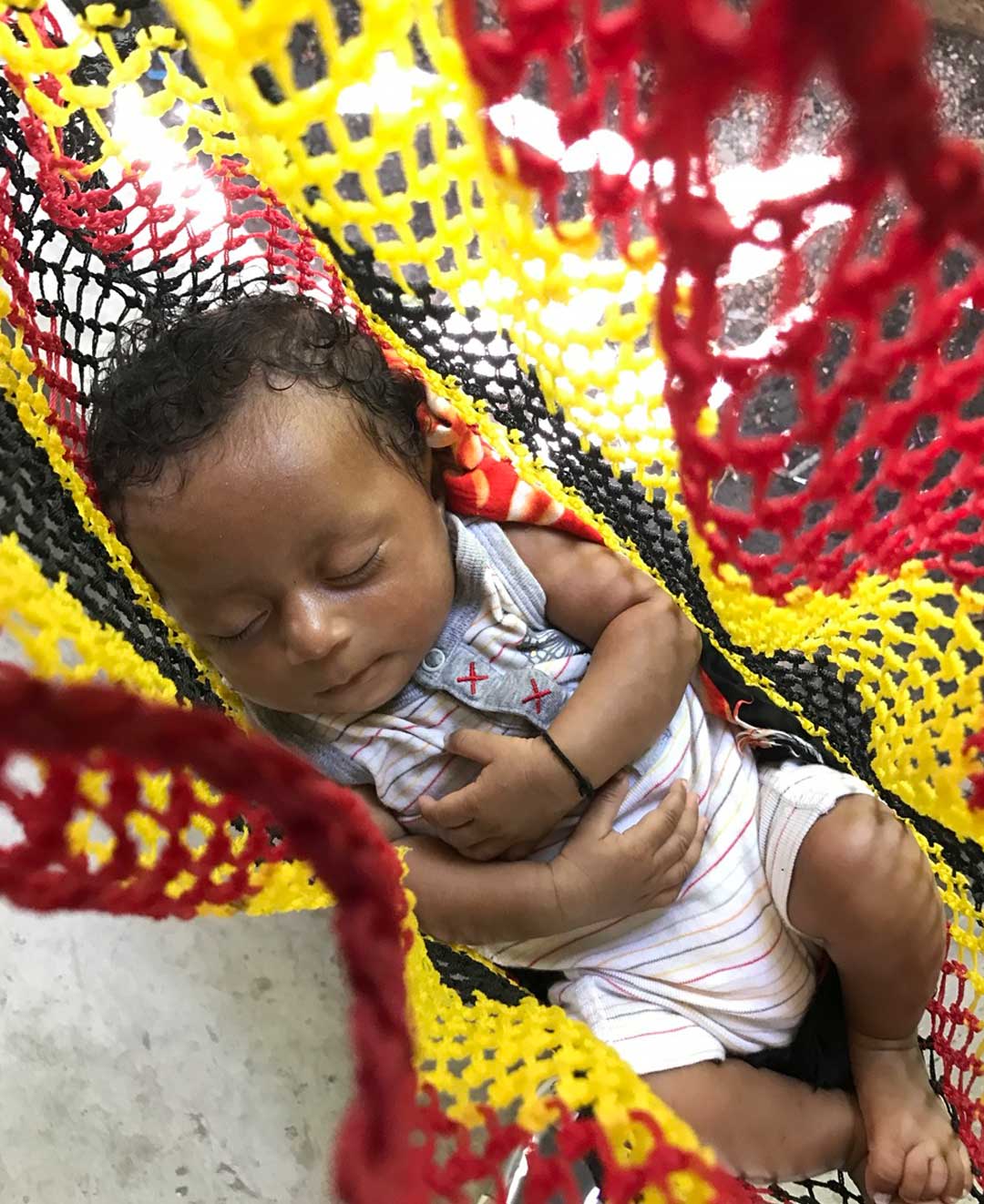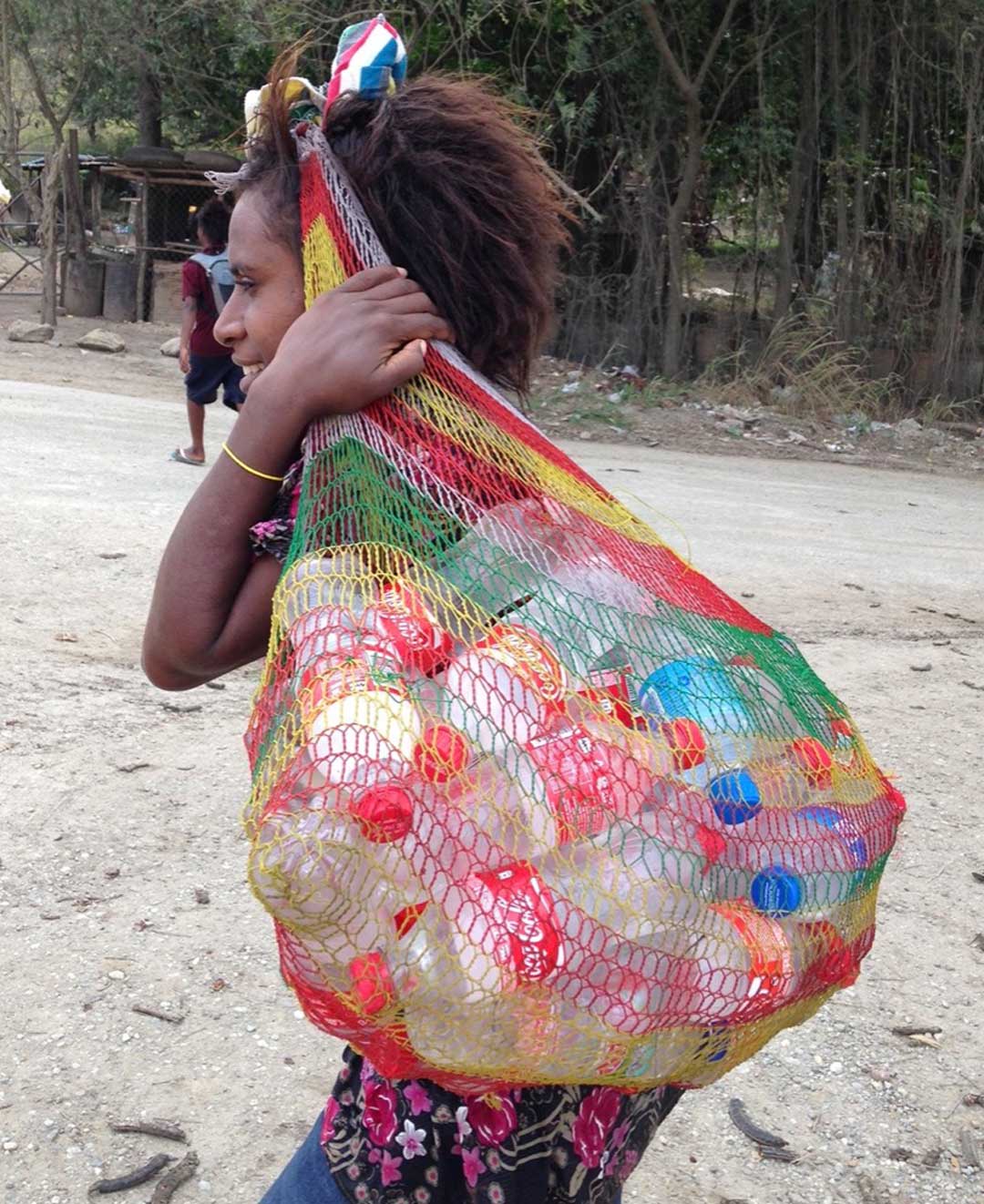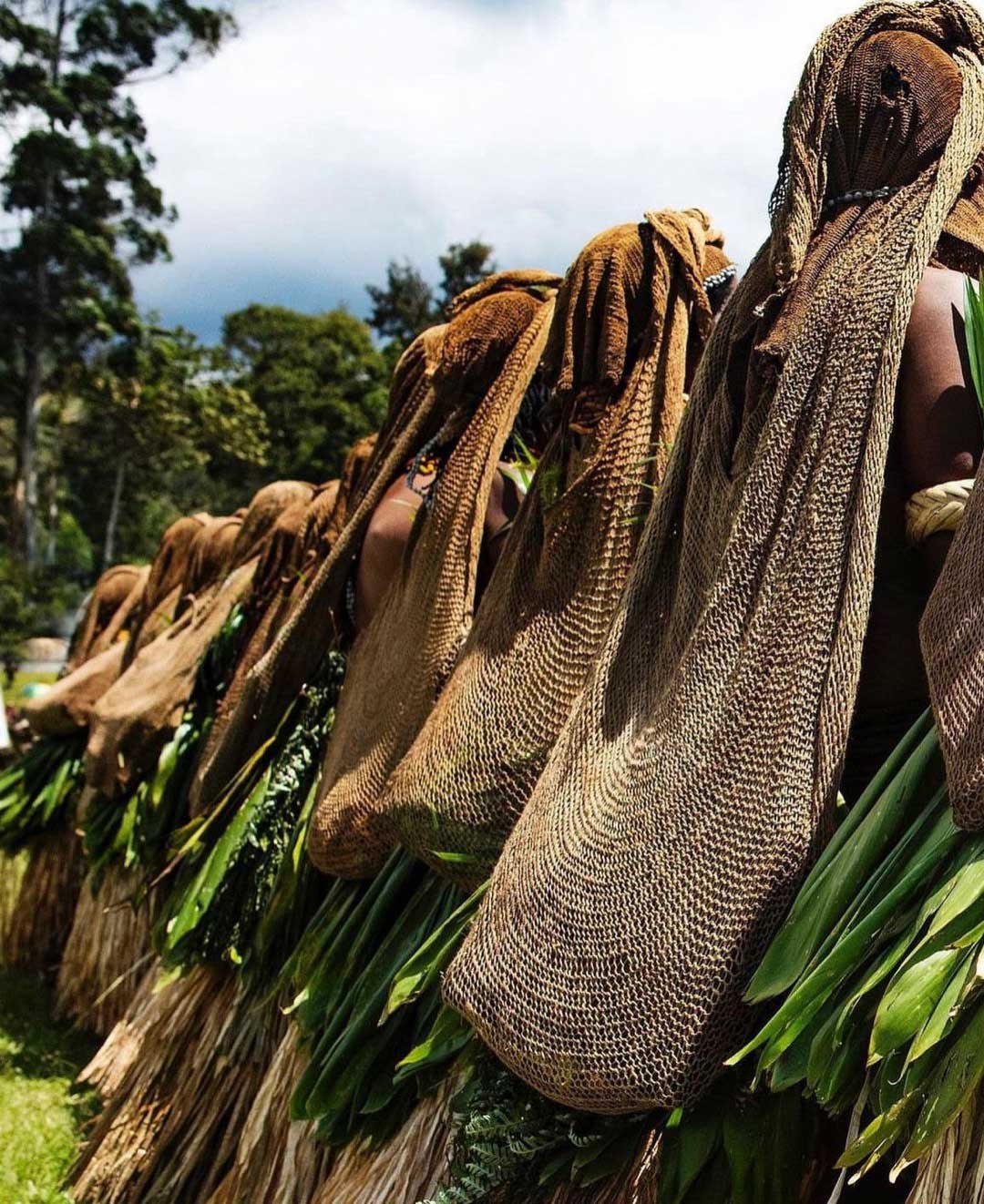A bilum is a traditional string bag, but in Papua New Guinea a bilum is so much more than its function. A bilum is a cultural artefact embedded with value and meaning and bilum weaving is a cultural practice which binds and interconnects generations of women and clans.
Bilum weaving is passed down from one generation of women to the next and helps lay the foundation of society; babies and young children are carried and sleep in bilums from birth, villages are sustained by bilums as they are used to carry firewood and food and bodies are adorned with bilums in times of celebration. In fact the word for a mother’s womb is bilum bilong baby, ‘the babies bag’.
Bilums are traditionally made from foraged natural fibres, most commonly trees or plants. Fibrous strands are extracted from the plants by soaking off the outer layers, before being dried. Fibres are then twisted together by women rolling them along their thighs to form a string. The string is then woven in a knotless, continuous pattern of figure eights. When more string is required, more fibre is twisted directly onto the end and another section is woven before adding more fibre.
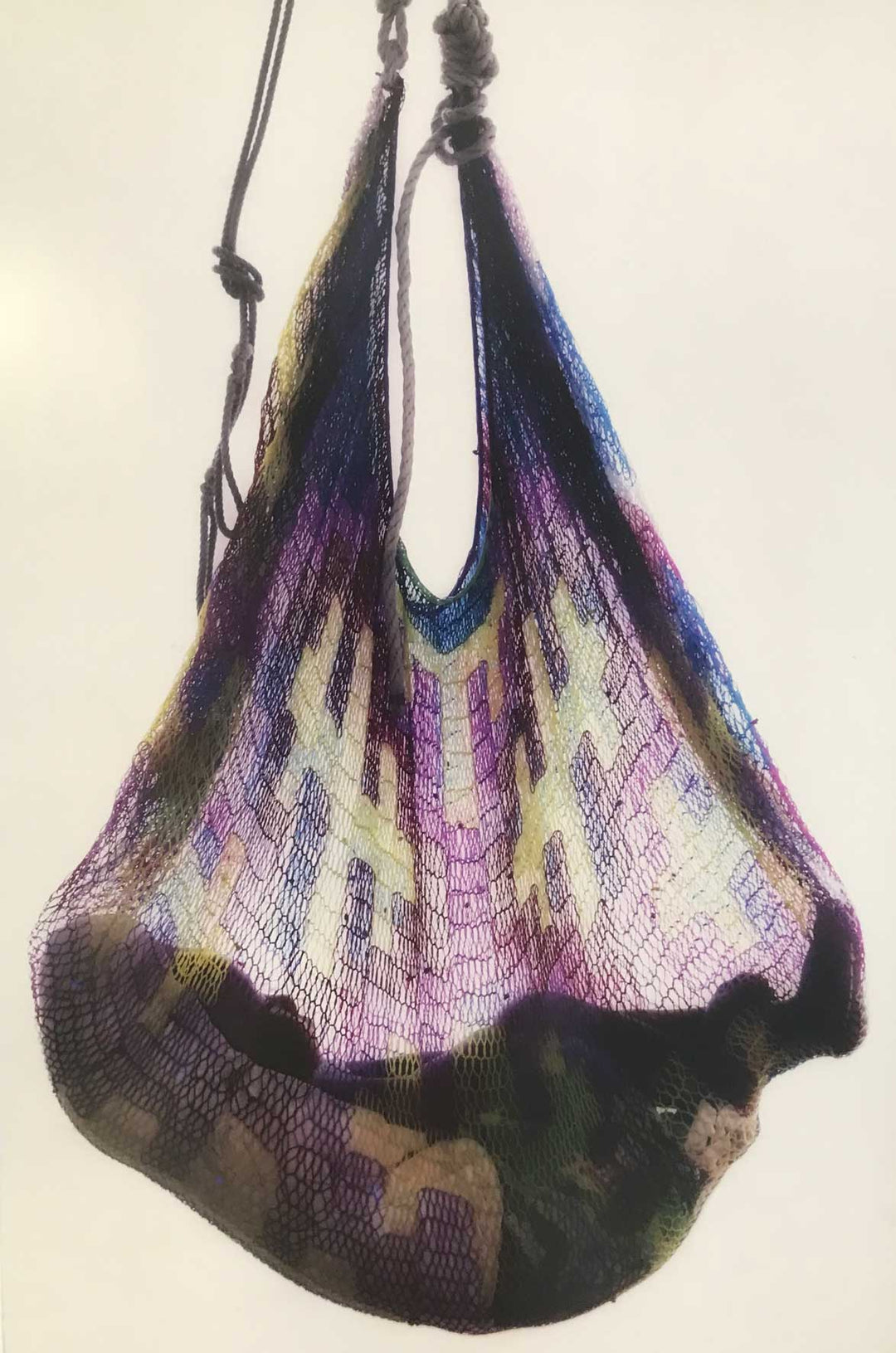
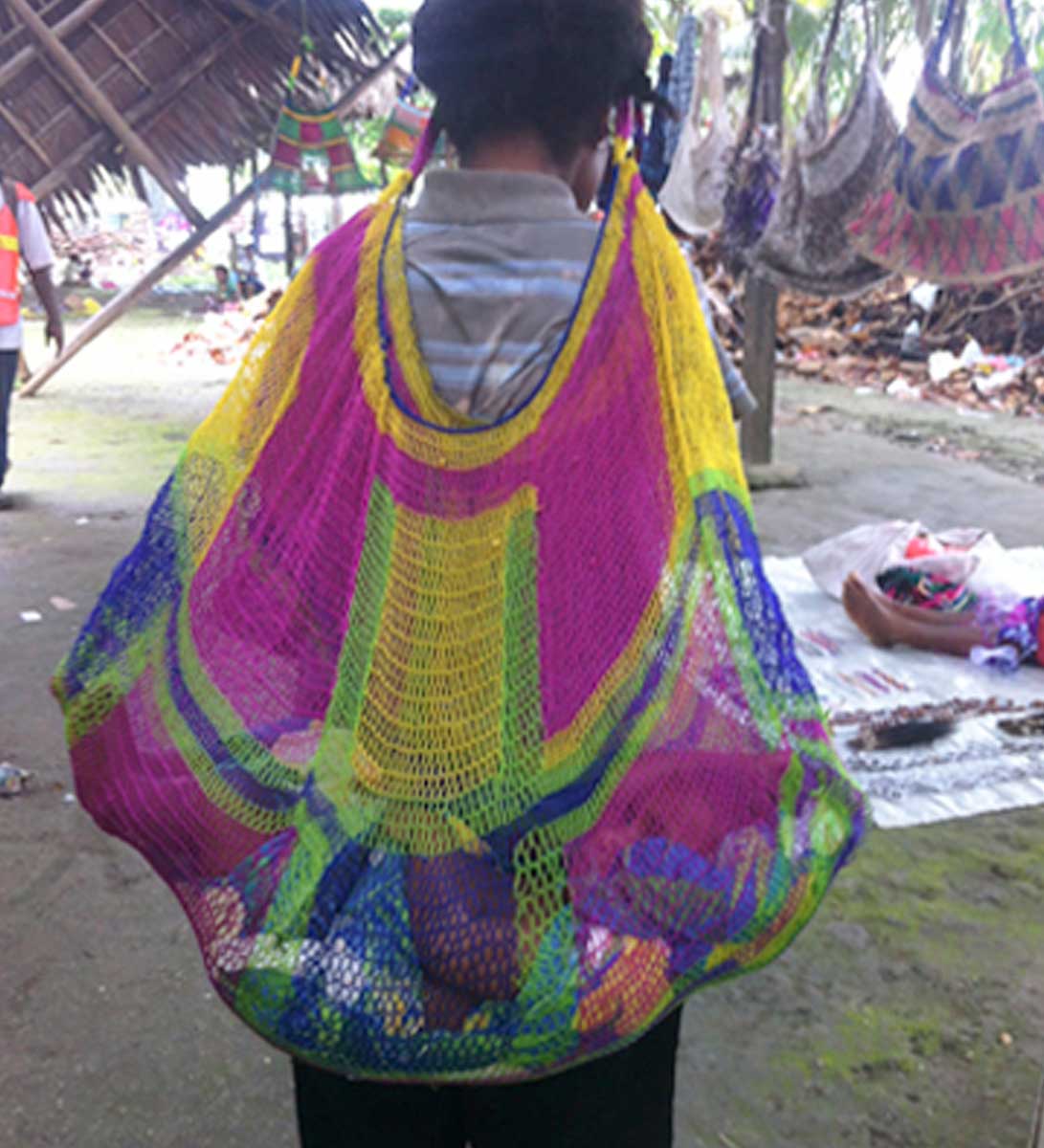

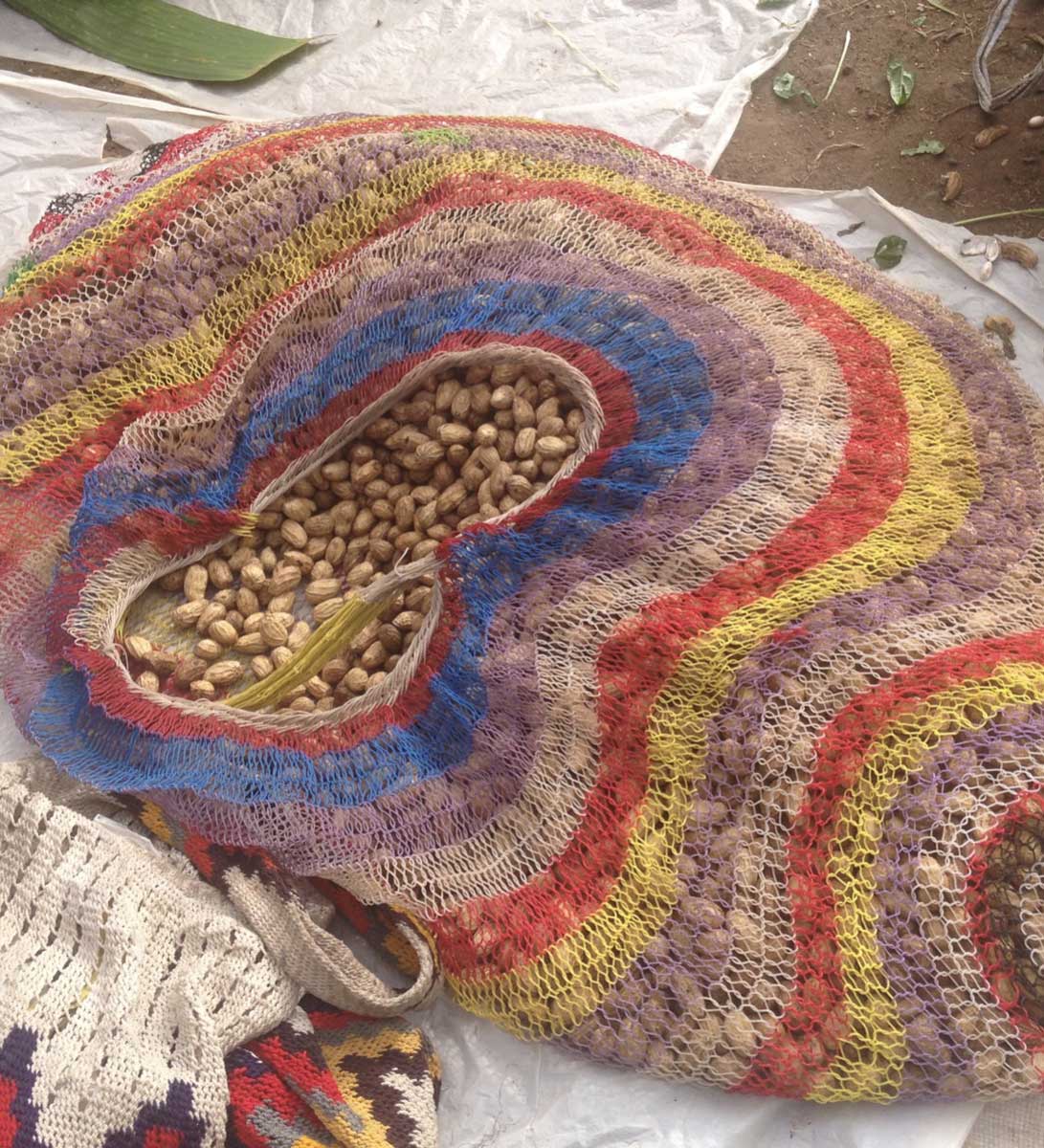
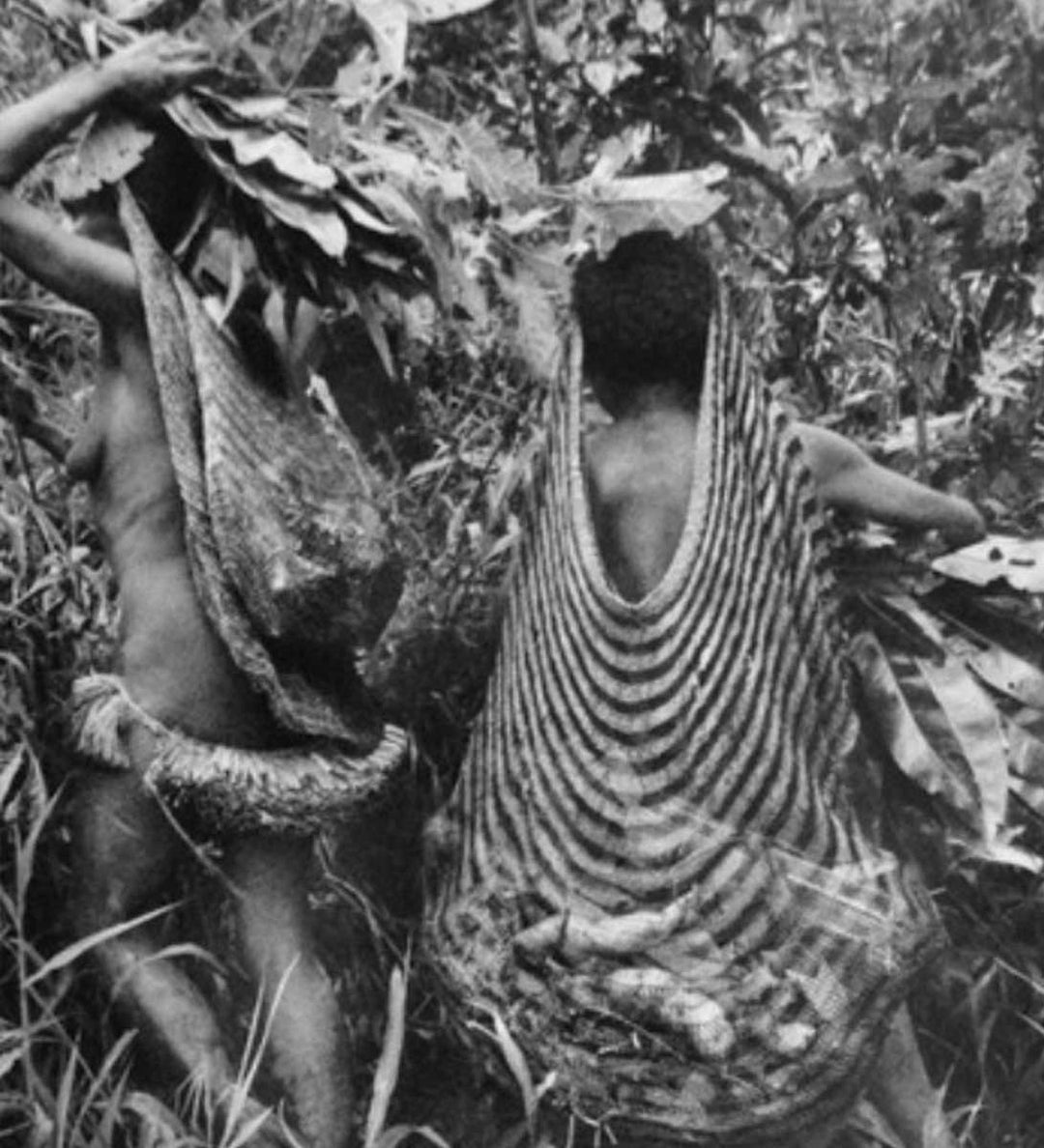
Over the years with the introduction of Western goods and the availability of synthetic yarns and string, women have innovated bilum weaving production.
As well as the continued telling of ancient stories through bilum patterns, new and evolving stories are woven into bilums in bright, bold colours of varied materials. These are expressions of contemporary identity, experiences and societal commentary.
Bilums have not lost their significance in Papua New Guinea, they are still coveted and revered for the time and emotion that goes into making them. They are still integral in many ceremonies such as initiation and bride-price offerings.
Bilums are a fundamental part of our enterprise. As more communities in PNG move from subsistance living and adapt to a cash economy, they need to find ways to earn money.
By purchasing and creating demand for traditional bilums in todays economy we are providing income stream for women with traditional skills, without the need to re-train to seek employment. Creating an appetite for bilums on an international stage also contributes to preserving the practice, as opportunities are created for young women to earn income from in a creative industry hinged on traditional skills.
Purchasing a bilum from Bilum & Bilas contributes to keeping this sacred practice alive and supporting women weavers.

